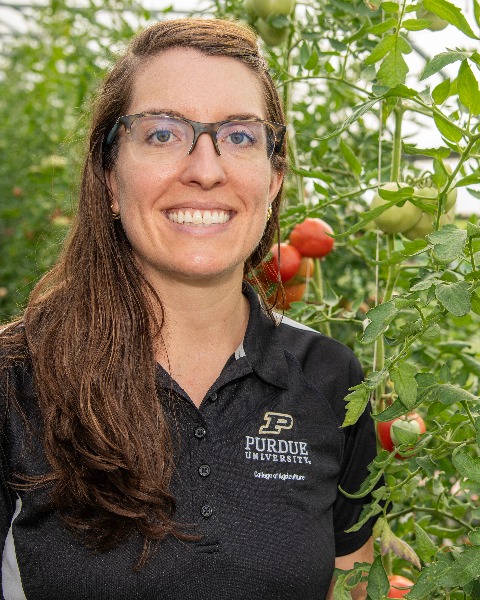Member Symposium
Insects as Food, Feed, and Fertilizer: Engaging and Training the Next Generation of Scientists
Enhancing specialty crop production with insect-derived soil amendments
Sunday, November 10, 2024
3:20 PM - 3:40 PM MST
Location: Phoenix Convention Center, 127 B, PCC
- MA
Melina Agila
Purdue University
West Lafayette, Indiana 
Laura L. Ingwell (she/her/hers)
Assistant Professor
Purdue University
West Lafayette, Indiana
Presenting Author(s)
Co-Author(s)
Insects play a vital role in agricultural economies. Historically the emphasis of insects has been placed on their pest status and utility as pollinators and biocontrol agents. As we are confronted with feeding a growing population on a dwindling resource base, their contributions as a source of protein for feed and to nutrient recycling are gaining traction. The need for novel solutions to agricultural challenges are driven by issues such as soil erosion, excessive use of synthetic inputs and resource limitations. A significant challenge in all farming systems, particularly urban ones, is the decline in soil health. A common approach to remediate this involves application of amendments. Novel amendment sources include waste from insect-based protein production facilities and composting with insects, including black soldier flies (Hermetia illucens; BSF) and house crickets (Acheta domesticus) in particular. Here we assess the application of three insect-derived soil amendments on specialty crop production: cricket frass, BSF frass, and chitin from BSF production. Through laboratory assays and field experiments, we will evaluate the impacts of these three amendment sources on seed germination, plant growth and yield, and soil health metrics in two cropping systems: carrots and bok choy. We will measure pH, electrical conductivity, nutrient content and mobility, soil aggregate stability, compaction, water infiltration and microbial activity in field trials. The results will be presented and discussed in the context of sustainable food production and the creation of circular economies around insect production.

.png)
